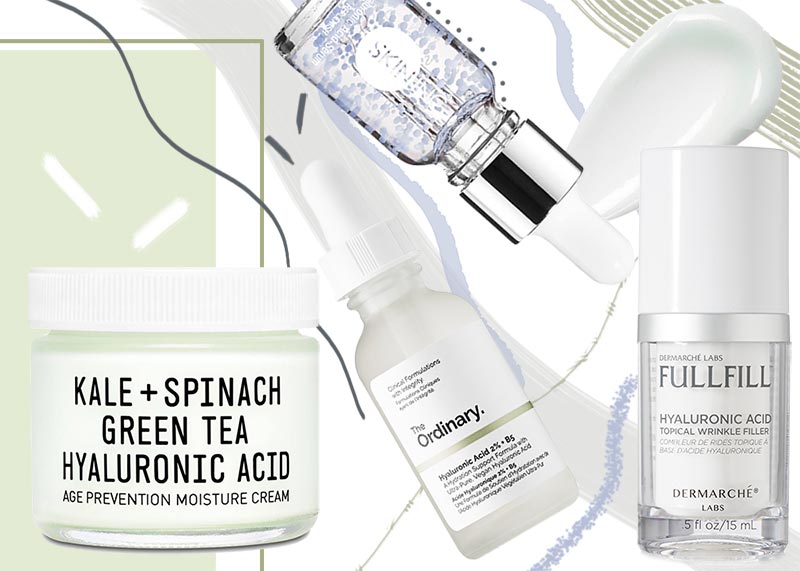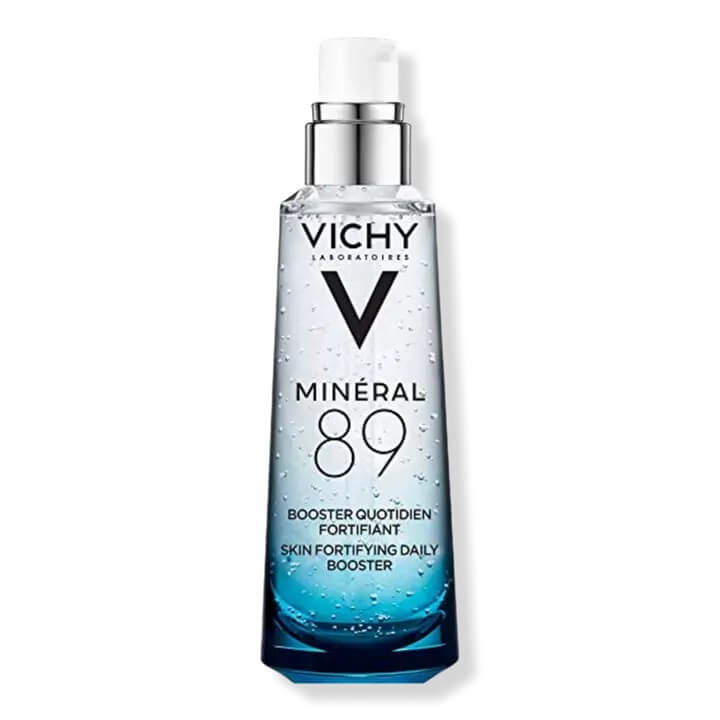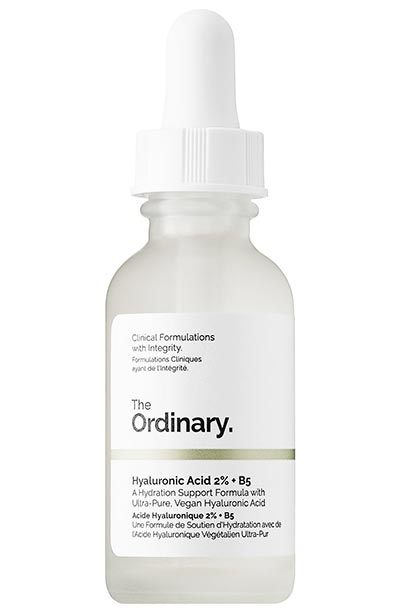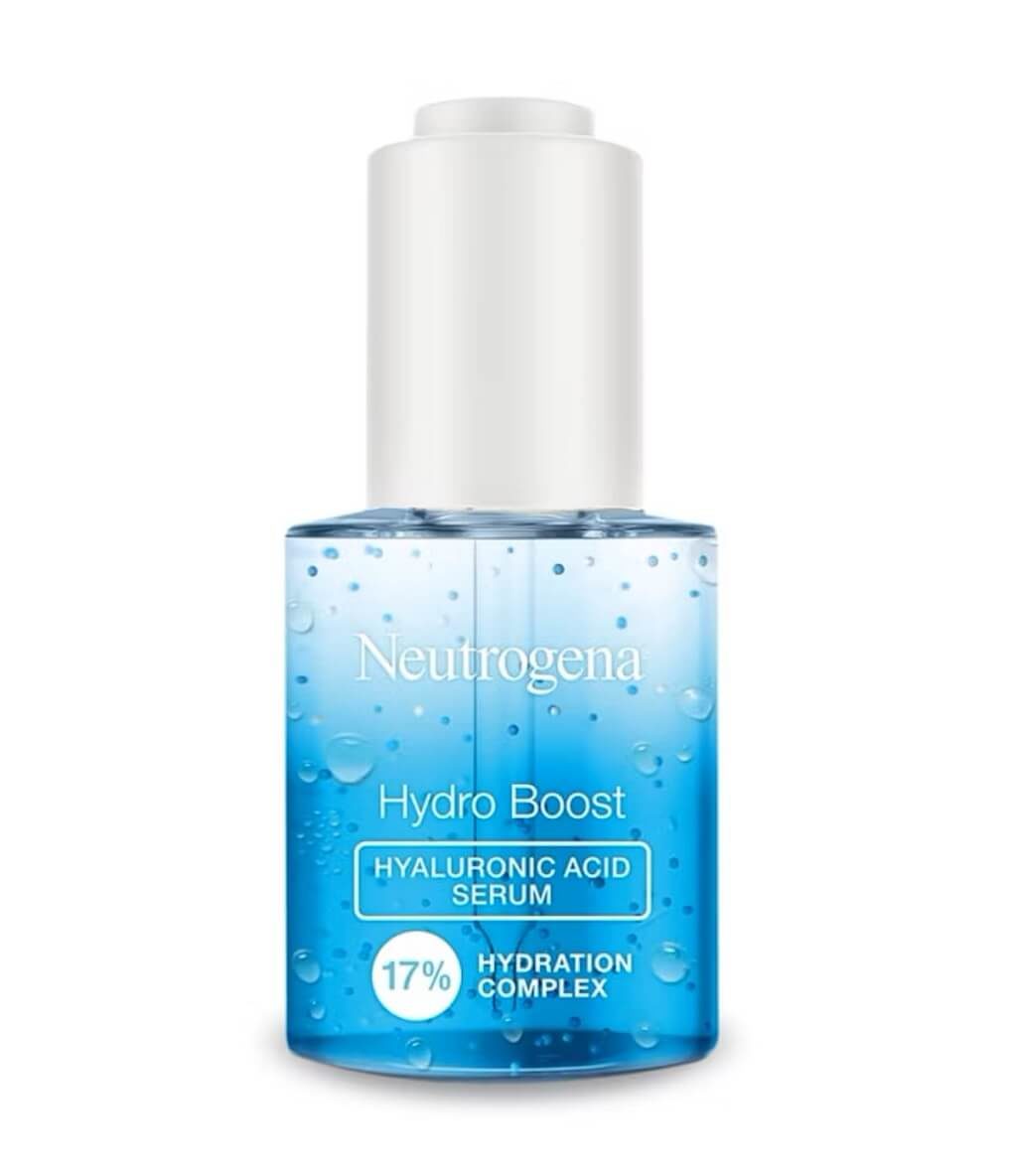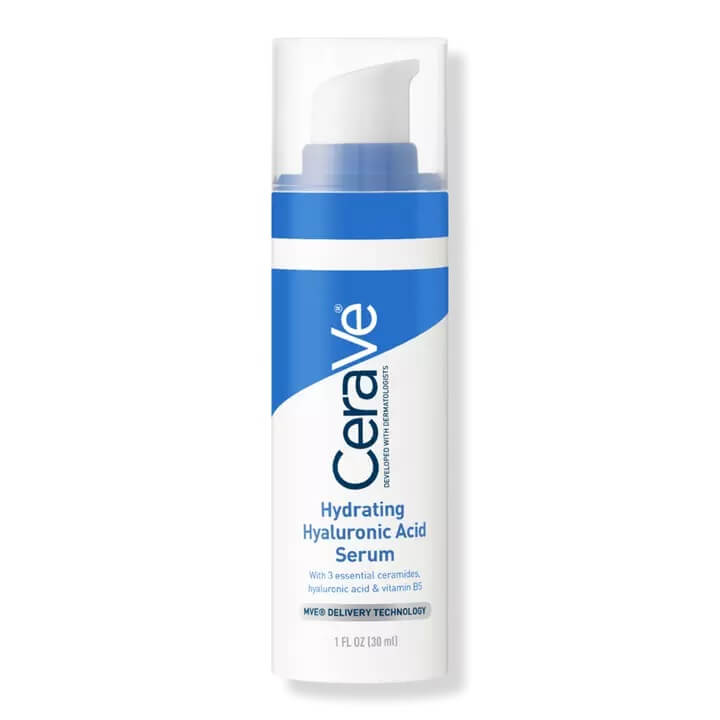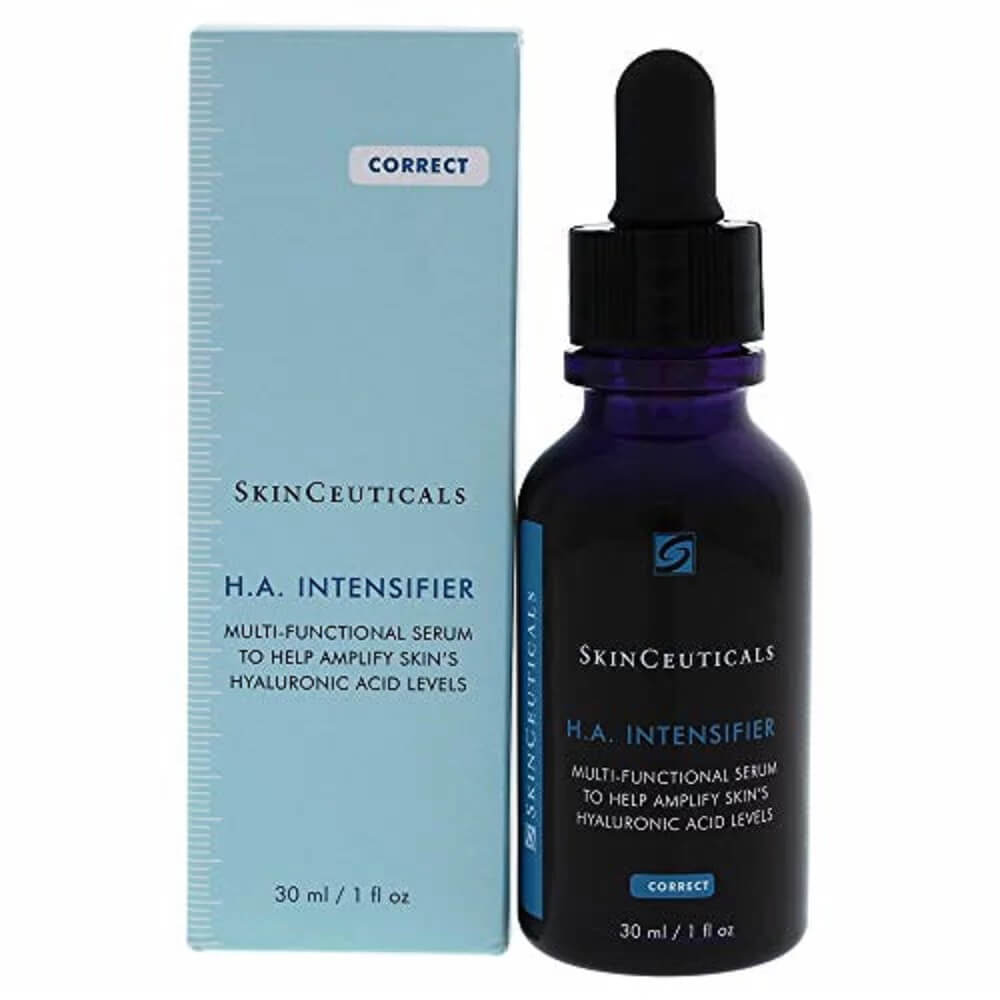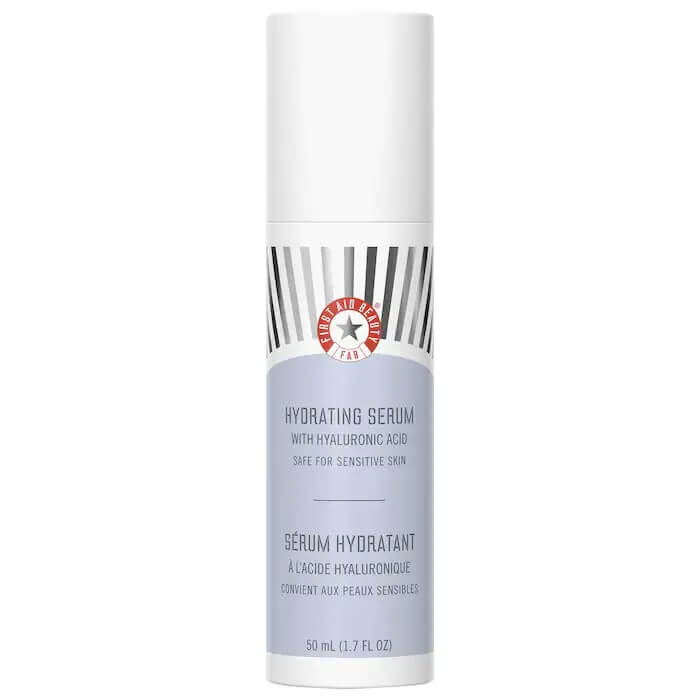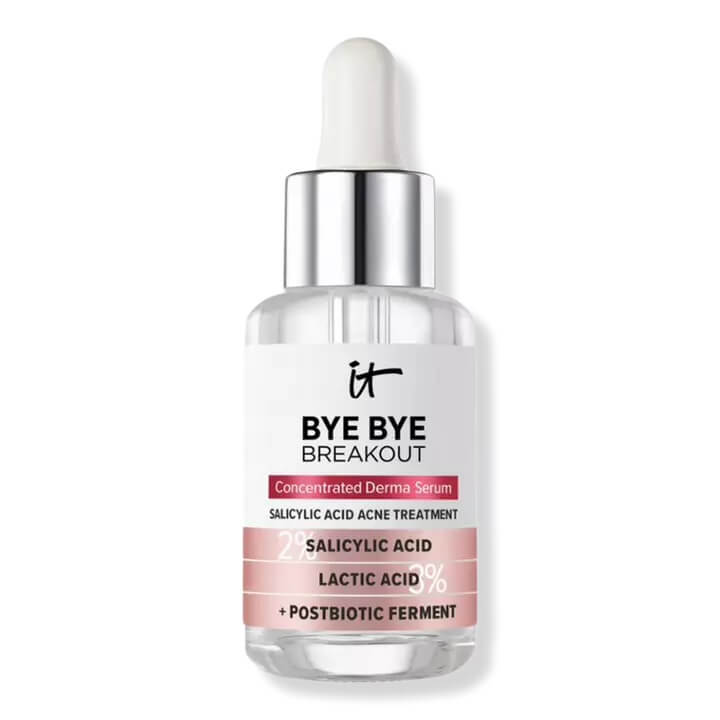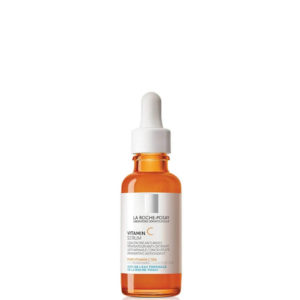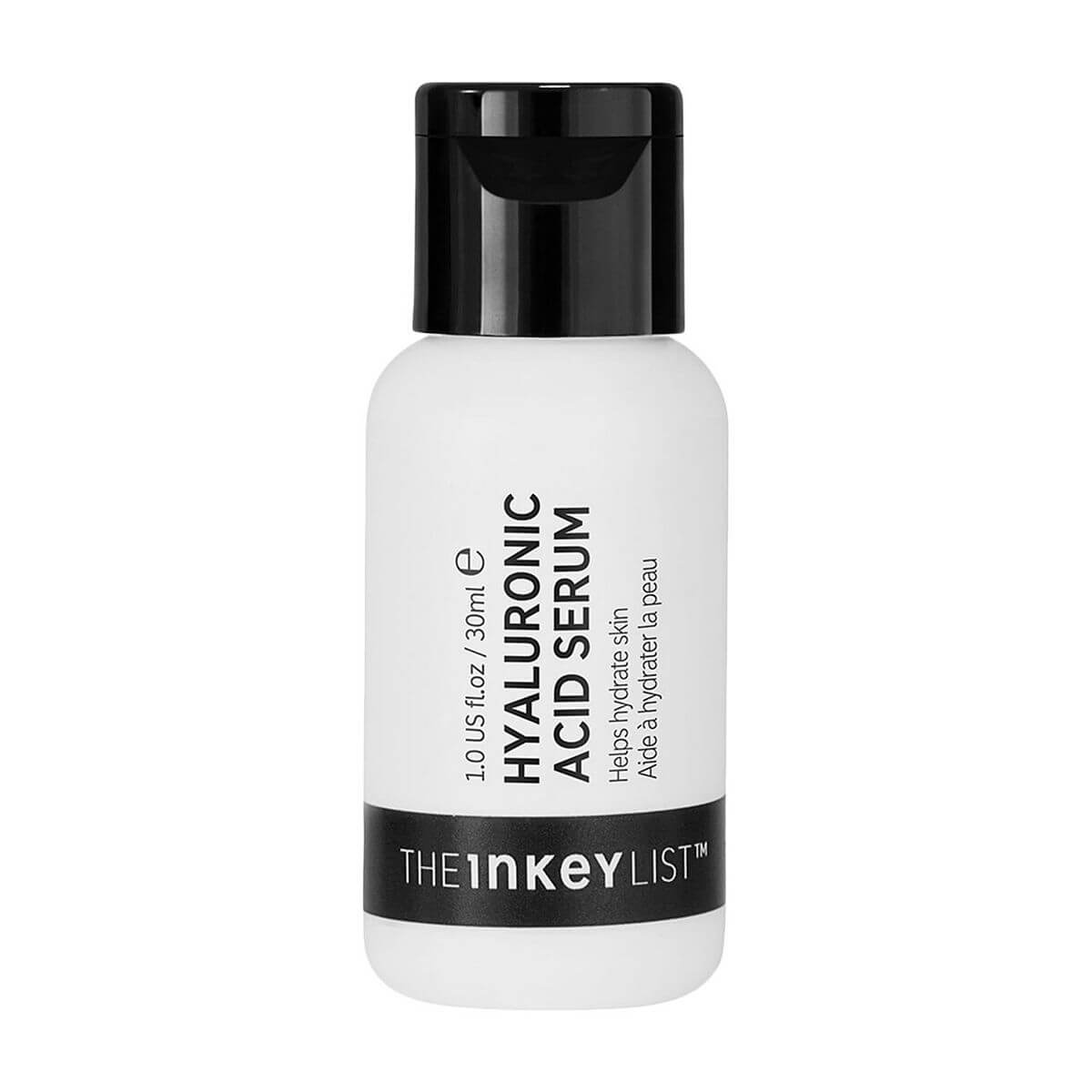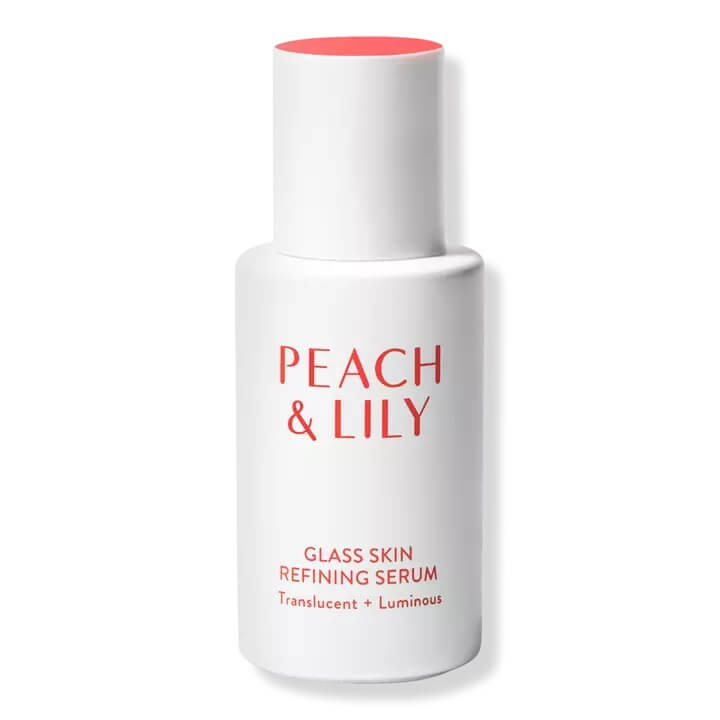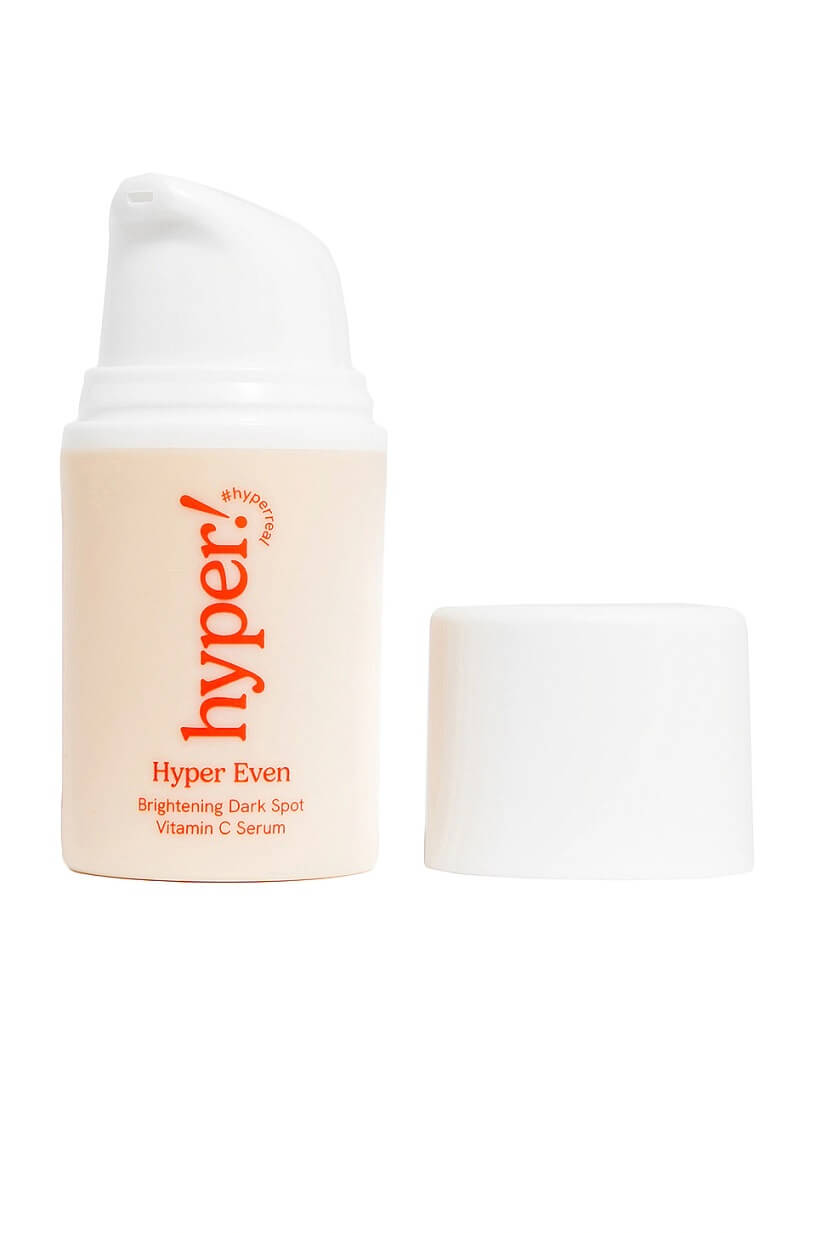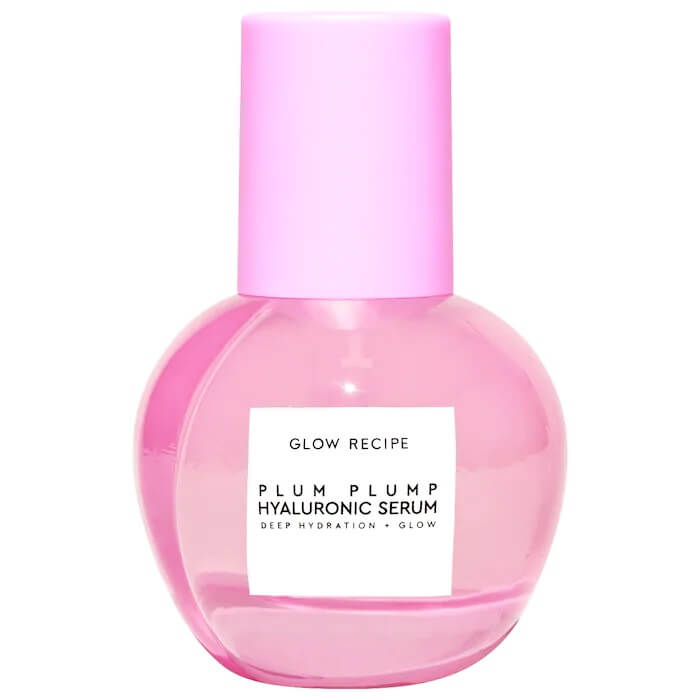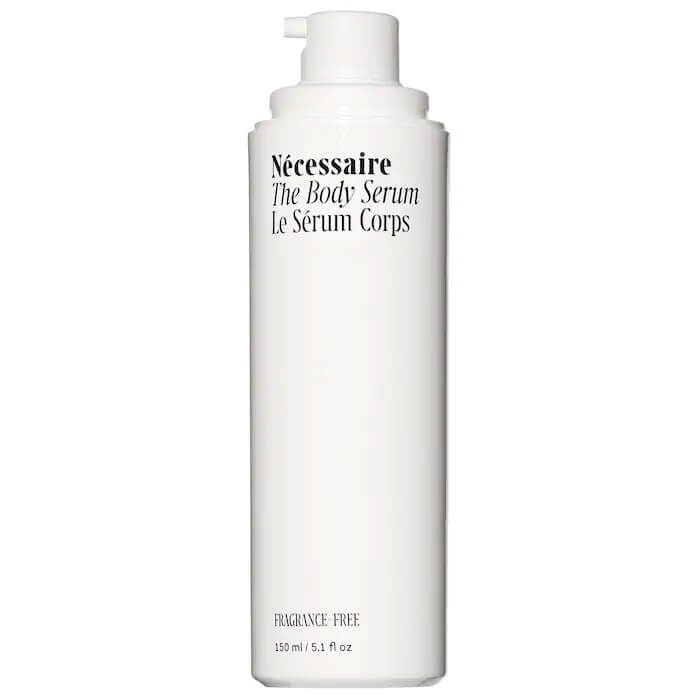Hyaluronic acid is synonymous with hydration. Often referred to as HA for short, it’s one of the most well-known, powerful humectants that can absorb large amounts of water and bring it into the skin.
Dehydration, or lack of water in the skin, can make it feel dry, dull, and easily irritated, so preventing it is a worthwhile endeavor. Unlike thick moisturizers that create a moisture-sealing layer over the skin, humectants like hyaluronic acid add water directly into the skin. That dose of hydration plumps up the skin, softens wrinkle depth, and provides a grease-free glow.
Whether your skin is oily or dry, a hyaluronic acid serum can be a valuable addition to your skincare routine. We’ve selected the best hyaluronic acid formulas for every skin type and budget so you can get your skin looking plump with moisture.
Best hyaluronic acid serums overview:
- Best overall: Vichy Minéral 89 Hyaluronic Acid Face Serum
- Best budget: The Ordinary Hyaluronic Acid 2% + B5
- Best hydrating: Hydro Boost Hyaluronic Acid Serum
- Best for dry skin: CeraVe Hydrating Hyaluronic Acid Serum
- Best splurge: Skinceuticals Hyaluronic Acid Intensifier (H.A.)
- Best for sensitive skin: First Aid Beauty Hydrating Serum With Hyaluronic Acid
- Best for oily skin: IT Cosmetics Bye Bye Breakout Salicylic Acid Acne Serum
- Best with vitamin C: La Roche Posay 10% Pure Vitamin C Serum
- Best anti-aging: The Inkey List Hyaluronic Acid Serum
- Best for glass skin: Peach & Lily Glass Skin Refining Serum
- Best for dark spots: Hyper Even Brightening Dark Spot Vitamin C Serum
- Best fun factor: Glow Recipe Plum Plump Hyaluronic Acid Serum
- Best body serum: Nécessaire The Body Serum
How we chose the best hyaluronic acid serums
To compile this list, we researched manufacturer specifications, including other active ingredients, types of hyaluronic acid, and more, to create a short list of the top hyaluronic acid serums. Then, we combed through detailed published research, product descriptions, ratings, and reviews to find the best hyaluronic acid serums for each category.
Our picks for the best hyaluronic acid serums
This gentle serum offers the perfect level of hydration for just about anyone, which is why it’s our top pick. The formula has a simple ingredient list free from potential irritants like fragrance, so it’ll suit even highly sensitive skin. It’s also endorsed by the National Eczema Association.
This serum is slightly gel-like with a lightweight texture that won’t drip. It sinks into the skin readily, leaving behind a subtle dewy look. The serum is made from sodium hyaluronate, the salt form of hyaluronic acid, which is a little more stable. However, Vichy doesn’t disclose the percentage or molecular weight.
The product also includes Vichy Volcanic Water, which has a barrier-repairing and protecting effect, and glycerin (another fantastic humectant), so expect gentle hydration. The bottle itself looks elegant and features a pump dispenser, which makes for convenient and easy application.
Skin type: All | Key benefits: Hydrating, plumping, barrier-repairing | Usage: 2 drops twice per day | Size: 2.5 oz
This hyaluronic acid serum is a clear winner if you’re all about getting the best bang for your buck. In fact, we’d argue that this product is responsible for generating most of the hype around hyaluronic acid serums.
This affordable formula combines low, medium, and high molecular weight hyaluronic acid for deep hydration of every layer of the epidermis. A sodium hyaluronate crosspolymer offers excellent moisture-sealing effects (almost like an occlusive) for improved long-term hydration.
The texture is a little thicker and stickier than we usually expect from a serum, but its hydrating ability and low price make it worth it.
Skin type: All | Key benefits: Hydrating, plumping, long-lasting | Usage: A few drops twice per day | Size: 2 oz
This serum takes humectants to the next level, with a massive blend of hydrating agents making up 17% of the formula. In addition to two forms of hyaluronic acid, it also includes glycerin, trehalose butylene glycol, panthenol, xylitol, and a few other humectants.
Trehalose is a particular standout because, in addition to hydrating, it can help reduce signs of photoaging in the skin. But since Trehalose isn’t considered a superstar anti-aging agent like peptides or retinol, this formula is mainly about hydration.
The texture is a little dense for a serum, but it sinks into the skin well, often leaving behind a healthy glow. That said, using it in conjunction with the rest of the hydro boost line might be too much hyaluronic acid for some users.
Skin type: All | Key benefits: Hydrating, plumping, luminizing | Usage: 4-5 drops twice a day | Size: 1 fl oz
CeraVe’s take on a hyaluronic acid serum features the brand’s signature blend of barrier-repairing ceramides for immediate hydration and long-term moisture-binding ability. That’s why it’s an excellent choice for those with dry skin.
There’s a common (but unproven) concern that hyaluronic acid may end up dehydrating the skin in low humidity if it’s not paired with a moisture-sealing agent. CeraVe’s formula includes dimethicone, a powerful occlusive that seals moisture into the skin and may prevent dehydration in arid climates.
This is a richer emollient formula ideal for normal or dry skin types. If you have oily skin, you may find it too rich for you as a serum, although you could still enjoy it at night instead of a regular moisturizer.
Skin type: Normal to dry | Key benefits: Hydrating, barrier-repairing, smoothing | Usage: A few pumps daily | Size: 1 fl oz
Don’t mind splurging? There are plenty of expensive hyaluronic acid serums out there, but SkinCeuticals does an excellent job of justifying its price point.
Sodium hyaluronate is used at 1.3% to hydrate the surface levels of the skin. The real standout ingredient is Proxylane, a patented molecule that can visibly improve the skin’s protective lipid profile and the look of deeper wrinkles.
This serum is worth the price, thanks to its clever formulation and clinically backed anti-aging results. SkinCeuticals’ research shows that this serum dramatically improves skin firmness and plumpness for a noticeably more youthful look.
Skin type: All | Key benefits: Hydrating, firming, plumping, anti-aging | Usage: 4-6 drops, once or twice daily | Size: 1 fl oz
A fragrance-free formula and a whole blend of soothing ingredients make this our favorite hyaluronic acid serum for sensitive skin. It features signature First Aid Beauty ingredients that offer calming effects, like colloidal oatmeal, green tea, and licorice extract.
It even includes squalane for improved skin softness and moisture retention. Despite its emollient touch, the overall formula is light and non-comedogenic.
Skin type: All | Key benefits: Hydrating, plumping, soothing, anti-aging | Usage: Coin-sized amount twice daily | Size: 1 fl oz
If your skin is oily or blemish-prone, this all-in-one acne treatment is an excellent choice that’ll keep your skin supple. Salicylic acid clarifies pores, lactic acid provides surface exfoliation, and niacinamide has a pore-minimizing and oil-controlling effect. Sodium hyaluronate and glycerin hydrate the skin, making it a non-drying treatment for oily skin.
The recommendation from IT Cosmetics is to use the serum twice daily, but we’d worry about over-exfoliation. If you’re new to exfoliating acids, start with weekly use and slowly increase the frequency.
Skin type: All, acne-prone | Key benefits: Exfoliating, acne-fighting, non-drying | Usage: 3-4 drops twice daily (start with once daily) | Size: 1 oz
This is one of our favorite vitamin C serums. It just so happens that this La Roche-Posay product also contains a healthy dose of hydrolyzed hyaluronic acid for deep hydration. The 10% concentration of vitamin C gives the skin a protective, anti-aging boost and can also offer some skin-brightening effects.
While it’s recommended for sensitive skin, keep in mind that it has a bit of salicylic acid, alcohol, and fragrance, which may pose an issue for some.
Skin type: All | Key benefits: Hydrating, anti-aging, brightening | Usage: 3-4 drops in the morning | Size: 1 fl oz
This serum is focused on intense hydration, with multi-molecular hyaluronic acid and glycerin to pack in the moisture. The other key ingredient is Matrixyl 3000, a trademarked peptide blend that’s known for helping to firm the skin and reduce wrinkles. Peptides and hyaluronic acid are a winning combination if you’re after anti-aging effects.
The texture is very light and fluid, which is ideal for oily skin, but it can make for a difficult-to-control application because of the awkward dispenser.
Skin type: All | Key benefits: Hydrating, anti-aging | Usage: A pea-size amount twice daily | Size: 1 fl oz
Hyaluronic acid is just one of the few outstanding ingredients in this serum. It’s designed to create glass skin, or in other words — skin that looks smooth and healthy.
To achieve that, this serum blends brightening, anti-aging, soothing, and pore-minimizing ingredients like niacinamide, peptides, and madecassoside. Multiple forms of hyaluronic acid guarantee total skin plumpness. That said, it’s very light, so those with dry skin will need to layer a strong moisturizer over it.
Skin type: All | Key benefits: Hydrating, brightening, plumping, anti-aging, soothing | Usage: Liberally twice a day | Size: 1.35 oz
If you’re looking for a hydrating serum that’ll also help reduce the visibility of dark spots, this is an excellent choice. This serum is made with a potent blend of superstar brightening ingredients like vitamin C, kojic acid, and arbutin. Hyaluronic acid’s hydrating effects are bolstered by aloe and glycerin. There’s also a hint of salicylic acid, which adds an exfoliating, pore-clarifying boost.
Skin type: Normal, dry, combination, oily | Key benefits: Hydrating, brightening | Usage: 1-2 pumps in the morning | Size: 1 oz
Browsing through hyaluronic acid serums can get a little same-samey: blue and white bottles, promises of hydration, and very gentle-look formulas.
If you like to spice up your skincare routine, Glow Recipe delivers a luxurious water-gel serum with a gorgeous scent and fun bottle. The formula contains five types of hyaluronic acid along with an antioxidant blend of plum extracts for plump, glowy skin.
Skin type:All| Key benefits: Hydrating, plumping, antioxidant | Usage: 1-2 pumps twice daily | Size: 1 oz
We tend to focus on the face when it comes to serums, but hyaluronic acid is also a hydrating body treatment. This luxury serum includes five forms of hyaluronic acid for hydration from head to two that powers through every level of your epidermis.
It’s fragrance-free, so it’s a perfect choice for sensitive skin (and it makes us wonder if you could safely use it on the face). Ceramides help to better seal in moisture, while niacinamide adds its antioxidant touch. Overall, it’s light and non-greasy, a solid alternative if you don’t like the feel of moisturizer on your body.
Skin type:All| Key benefits: Hydrating, barrier-repairing, antioxidant | Usage: Daily as needed | Size: 5.1 fl oz
Hydrate away
Hyaluronic acid is an instant hydrator that easily fits into just about any skincare routine. The options for hyaluronic acid serums are nearly endless. Our top pick from Vichy is a light, gentle choice for all skin types, but there are plenty of others at different price points and with other active ingredients that pack more of a punch.
How to pick the right hyaluronic acid serums for you
When choosing the perfect hyaluronic acid serum for you, make sure to take your skin type and unique skin needs into account.
Skin type
- Dry. Look for formulas that combine hyaluronic acid with richer ingredients that seal moisture into the skin. These include dimethicone, oils, and ceramides. If you choose a non-occlusive serum, layer a moisturizer or oil-based face serum over it.
- Oily. Most hyaluronic acid serums are light and non-comedogenic, so they’re ideal for hydrating your skin. You can look for formulas with niacinamide if you also want pore-minimizing or oil-controlling benefits.
- Combination. All serums should work well for your skin. Consider layering additional moisture over the sections of your face that tend to be dryer.
- Sensitive. Look for fragrance-free formulas with skin-soothing agents like colloidal oatmeal or green tea. Our pick from First Aid Beauty fits the bill. If your skin flares up often, consider sticking to high molecular weight formulas, which may offer some anti-inflammatory effects.
Key benefits
- Hydrating and plumping. These are hyaluronic acid’s main purposes. All hyaluronic acid serums will hydrate well, thereby plumping the skin with moisture. Additional humectants like glycerin or panthenol can boost this effect.
- Moisturizing. Oily or occlusive ingredients, like plant oils, squalane, dimethicone, and ceramides, seal moisture in the skin. This makes for a more comprehensive moisturizing serum.
- Anti-aging. Any hydrating serum will make the skin look more youthful by plumping it up. For long-term anti-aging effects, look for skin-firming peptides and added antioxidants like vitamin C, niacinamide, or plant and fruit extracts.
- Brightening. Vitamin C, niacinamide, and licorice root extract can contribute to a skin-brightening effect if you experience hyperpigmentation or dark spots.
- Acne-fighting. Hyaluronic acid serums with salicylic acid or niacinamide can help with breakouts, although you’ll want to use them with a full anti-acne skincare routine.
Type of hyaluronic acid
- High molecular weight. This type of hyaluronic acid stays closer to the surface of the epidermis, giving the stratum corneum a rejuvenated appearance. It may also help calm irritation.
- Medium molecular weight. This type of hyaluronic acid penetrates a little deeper, just past the stratum corneum (the outermost layer of the epidermis). It’s almost always used in conjunction with low and high molecular weight hyaluronic acids.
- Hydrolyzed/low molecular weight. The smaller molecules have an easier time penetrating deeper into the epidermis for plumpness and more hydration throughout the skin’s main outer layer. This form of hyaluronic acid can be pro-inflammatory in wounds, although whether that translates to topical cosmetic products is unclear.
- Sodium hyaluronate. The stabilized salt form of hyaluronic acid is easier to formulate, which is why it’s so common. It often has a low or medium molecular weight for penetration beyond the stratum corneum, but it’s unclear if it’s pro-inflammatory.
- Hyaluronic acid crosspolymer. Interlinked chains of hyaluronic acid make for an ingredient that’s not just hydrating but can also create a barrier over the skin.
FAQ
Do dermatologists recommend hyaluronic acid serums?
Dermatologists have mixed opinions on hyaluronic acid. Many recommend it as an excellent moisturizing ingredient, especially in winter. However, some, like Board-Certified Dermatologist Dr. Shereene Idriss, are not fans, warning that the way it hydrates isn’t useful in the long term and overuse (especially in its low molecular weight form) may lead to irritation. Speak to your dermatologist about what they recommend for your skin.
What type of hyaluronic acid is best?
No one type of hyaluronic acid is best. Different molecular sizes penetrate the skin on different levels, so a serum with a blend like our pick from The Ordinary will offer the most complete hydration. That said, if your skin is sensitive or highly reactive, you may prefer to use simple high molecular weight formulas.
What’s the downside of hyaluronic acid?
Hyaluronic acid is used in many products today, and some people notice irritation due to overuse. There are also theories that the issue comes specifically from more penetrative forms of hyaluronic acid, which are increasingly popular. Other theories suggest that using hyaluronic acid in dry climates may worsen skin dryness. But this data is limited, and most dermatologists agree that using an occlusive can mitigate this issue.

